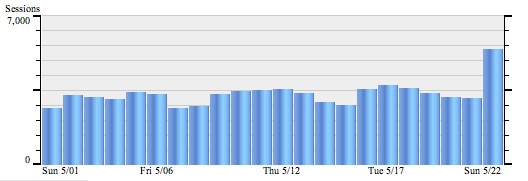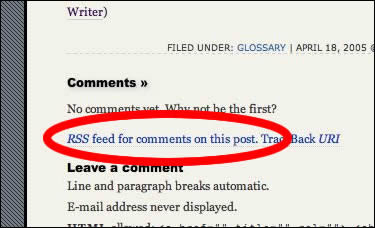It’s not quite the [Slashdot effect](http://en.wikipedia.org/wiki/Slashdot_effect), but Sunday’s article in the NY Times did result in a spike in readership, as the chart shows:

Average traffic for a Sunday is about 2,800 sessions; yesterday, the total was 5,500. (A “session” is a way of measuring individual visitors to a site, while “hits” simply refers to the number of times a page is loaded. Sessions are generally considered a more accurate reflection of readership.)
Note that Saturday numbers were up as well; the “Sunday” issue of the NY Times is actually available on Saturday.
While some of these new readers no doubt typed “johnaugust.com” into their browser, quite a few simply clicked the link in the online version of the story. A check of the referral log shows that 1,139 arrivals came directly from the NY Times website.
So what does this mean? Well, nothing really. The site didn’t crash, and long-term readership will probably stay exactly where it always was. But it’s always nice to have visitors.
 Unlike some sites, where the number of comments on a given article can reach triple-digits, most of the threads at johnaugust.com stay pretty short. Still, sometimes you want to keep on top of an interesting discussion without re-visiting the site every hour. That’s where RSS can be your friend.
Unlike some sites, where the number of comments on a given article can reach triple-digits, most of the threads at johnaugust.com stay pretty short. Still, sometimes you want to keep on top of an interesting discussion without re-visiting the site every hour. That’s where RSS can be your friend.